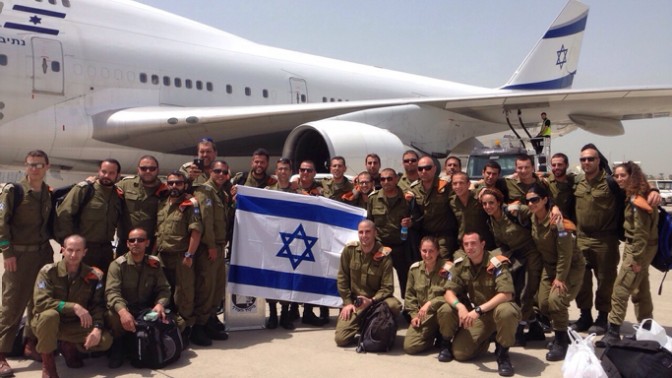Disasters, like wars, paralyse the Israeli media. No questions are asked, no doubts are raised, and there are no differences of opinion. In recent days, several Israeli missions have taken off to the disaster zone in Nepal. Alongside the welcomed missions of civil rescue organisations, and the private insurance companies, which are probably legally obliged to look after their customers in this way, there was a delegation from the IDF. The Israeli Defence Force delegation to Nepal is accompanied by a well-oiled PR machine.
Where does the Pavlovian leap of the Israeli state agencies to come to the aid of Israelis, just becasue they are far away come from? And why does it take priority over Israelis in distress in their own country? The Israeli press hardly ever asks this.
Quite a few journalists got themselves a free ride on the IDF aid planes to Nepal in order to cover Our Forces’ operations. But the costs, in operational and equipment terms of the official Israeli delegation are unknown. A question on this topic which was sent to the IDF Spokesperson’s Office has not yielded an informative answer. It is reasonable to assume that transporting a hundred tonnes of equipment and dozens of regular and reserve soldiers (doctors, paramedics, EMTs) and keeping them for an unknown period of time in a foreign country does cost many millions of shekels.
As of the time of writing of these lines, no voice in the Israeli media has been heard asking the obvious question of: why?
Here’s an army whose reservists claim that they suffer from a permanent shortage of equipment and food. Here’s a military which contends that a lack of funds has made it knowingly send troops into battle with outdate equipment and protective gear. So why does this army choose to invest in overseas operations whose sole basis is kudos for itself? On what moral and economic basis does it choose to do so? Saving lives is the only secondary aim, as was clearly implied by comments made by a Home Front Command officer interviewed on Channel 1 on 27 April who said that given that dozens of hours have passed since the earthquake, the chances of finding survivors are very low.
Journalists are selling themselves short, not for the Biblical pottage of lentils but a pottage of dozens of Israeli feel-good moving stories yielded by the delegation's visit. There’s almost no voice in the media which asks: should many millions be taken out of the military’s and State’s budgets in order to assist Israelis who can afford to purchase the pleasure of a trek at the end of the world or to rent a human womb? Why should that come at the expense citizens of the state who are here and who cannot afford the purchase of life-saving drugs which happen to be outside the government-subsidised list? Why should it come at the expense of school meals or those kicked out of public housing?
Why do Israelis who have had the misfortune to get caught in the midst of a disaster zone at the edge of the universe take precedence over the Arlosoroff Tent Encampment dwellers or those evicted from Givat-Amal, or Holocaust survivors who have to choose between food and medicines? Where does the Pavlovian leap of state agencies to help Israelis, just because they happen to be far away, come from? There may be many answers to these questions. Some of those answers may be logical or ethical, but the Israeli press has hardly ask them. Instead it mobilises itself to assist in the state and army’s international public relations campaign as if it were part of the government.
This Article was first published in Hebrew on The Seventh Eye. The English version was Translated by Sol Salbe of the Middle East News Service, Melbourne Australia









